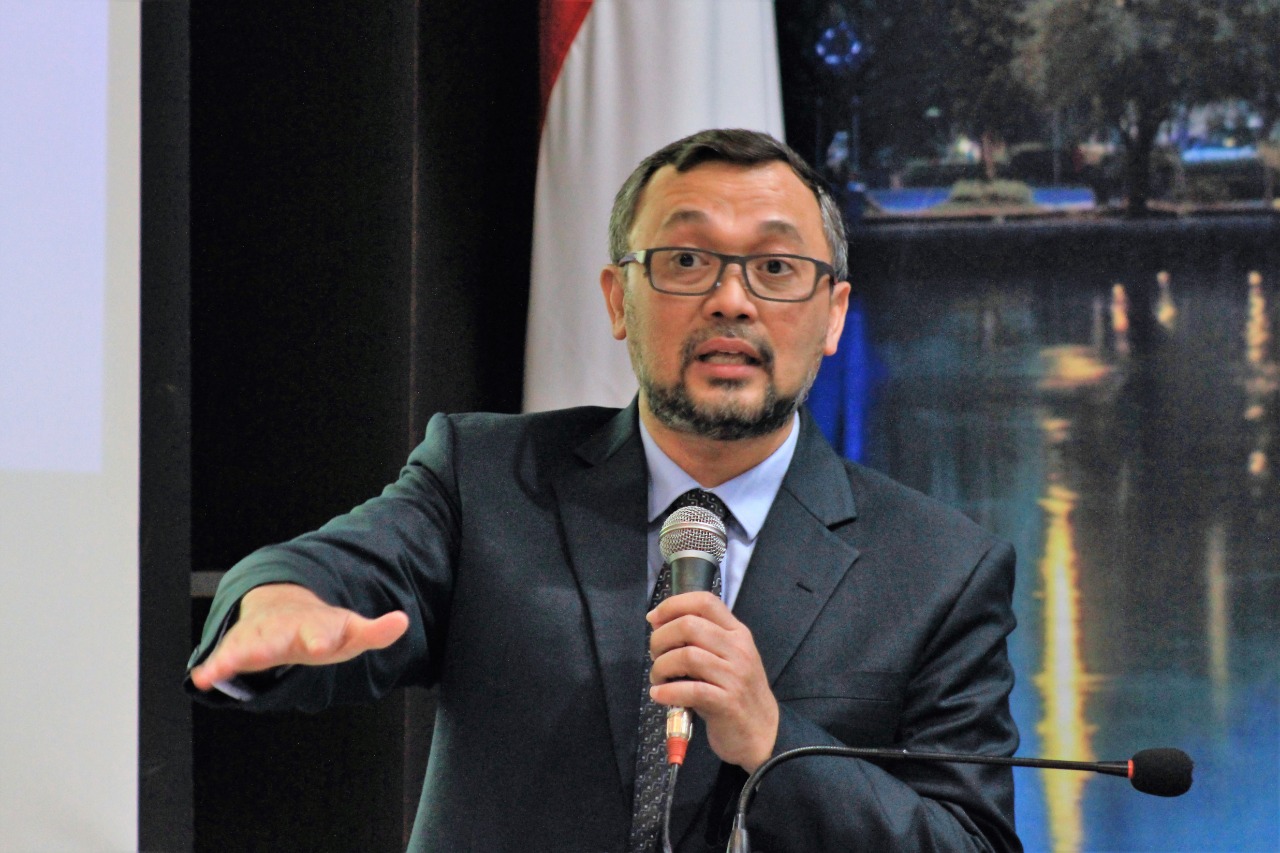UNAIR NEWS – Prof. Ir. Moch. Amin Alamsjah, M.Si., Ph.D. recently provided an update on the state of Indonesia’s trade amid COVID-19, and proposed some pathways out of the crisis. His key suggestion was that Indonesia develop its downstream industries to unlock more of the potential of its natural resources. Indonesia’s trade, he said, has been in surplus due to a steeper decline in imports compared to exports during the crisis.
“Some of the efforts that could improve Indonesia’s export performance are increasing profits from the sale of natural commodities, strengthening the domestic market, and the government providing more clarity on policies and regulations that favor Indonesian products,” said Prof. Amin.
Improving Natural Resources Export Performance
Prof. Amin, a professor at the Faculty of Fisheries and Marine Sciences at Universitas Airlangga, said that Indonesia can continue to export its finite natural resources such as coal, and agricultural products that are needed by the world such as palm oil, “but fisheries,” he said, “is the key to our exports.”
According to data from the Central Statistics Agency in 2019, fishery exports in Indonesia have decreased, and what is exported is mostly in the form of raw, unprocessed products. Prof. Amin said that Indonesia should not be proud of exporting raw products, because firstly, those exports are seeing decreased demand and second, raw products sell for much less.
“Do not let us be complacent in exporting raw goods, but rather produce more processed products. The profit comparison between selling raw materials and selling processed fish is 10:100”, explained Prof. Amin.
Strengthen the Domestic Market
Indonesia must strengthen its domestic markets to support a competitive fisheries industry with products at reasonable prices, which will lead to an increase in both supply and demand. One way to strengthen the domestic market is to support micro, small and medium-sized enterprises (UMKM). This, in turn, will support a stronger international trade presence, including across the ASEAN region and Australia. Indonesia became a member of the ASEAN Free Trade Area (AFTA) in 1992 with the goals of making ASEAN the world’s production center, attracting foreign investment, and creating a regional market in Southeast Asia. Just a few months ago the country’s new comprehensive economic partnership agreement with Australia, the IA-CEPA, came into force.
Clarity of Trade Policy
While strengthening the domestic market, a fisheries products trade policy that favors Indonesian producers is needed. The government must have the courage to issue policies that support Indonesia to, for example, finance Indonesian fisheries entrepreneurs and support the contribution of technology and innovation by researchers and academics.
“The opportunities must be created, must be facilitated by all parties. We need coordination and synergy, and to listen to all complaints, which must be resolved immediately,” said Prof. Amin, who is also the Coordinator of the Indonesian Fisheries Products Processing Society (MPHPI) in East Java Region.
Finally, Prof. Amin noted that the increasing trend of downstream processing would provide an alternative backbone for the fisheries industry in the future, and stated that MPHPI would support and help to prolong this trend.
Prof. Amin proposed these solutions in the East Java Ngobar Webinar “Challenges of Fishery Export Products in Covid-19 Era”, a collaboration between FPK UNAIR and Brawijaya University on Saturday, August 22, 2020. (*) This article was published in collaboration with The Australia-Indonesia Centre. You can also read it on their website: https://australiaindonesia.com/trade/domestic-processing-of-fisheries-commodities-is-the-solution-unair-expert/
Author: R. Dimar Herfano Akbar
Editors: Binti Q Masruroh and Tim Fitzgerald





